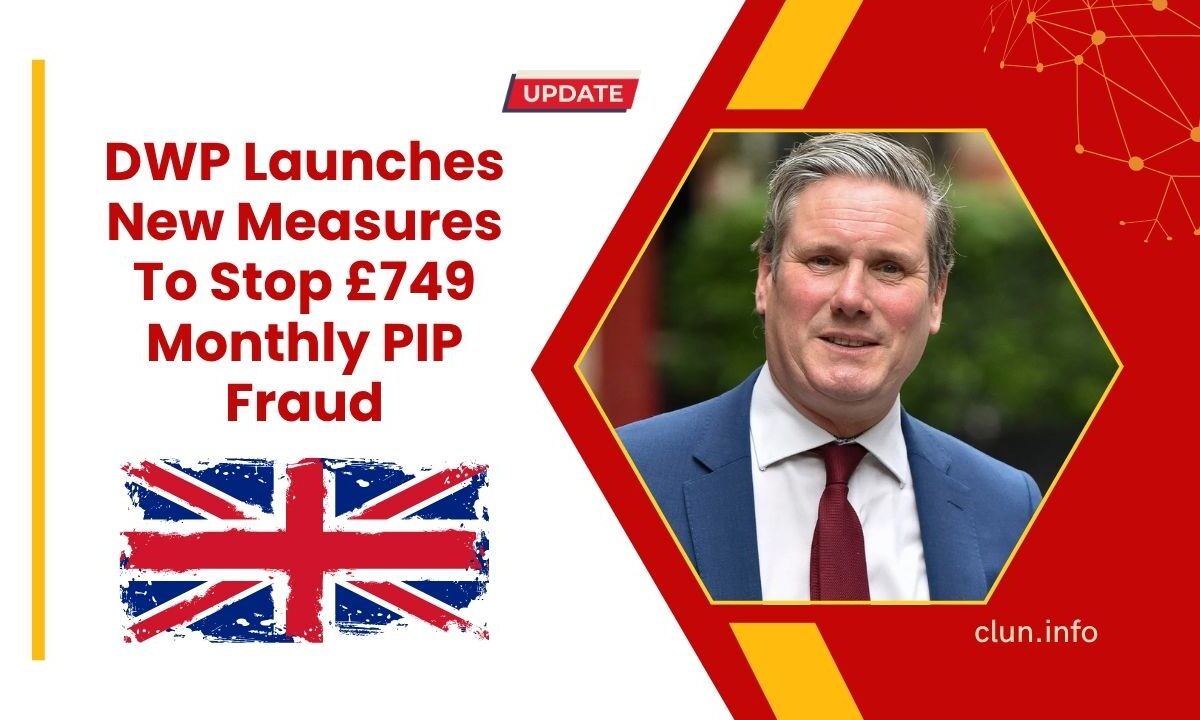The Department for Work and Pensions (DWP) has taken decisive steps to tackle growing cases of fraud and error in the benefits system, with a strong focus on Personal Independence Payment (PIP) claims.
This initiative follows alarming statistics that showed £330 million lost to PIP fraud and error last year—up significantly from £90 million in 2023/24.
With 3.7 million people currently receiving PIP, the government is rolling out more stringent controls to ensure only those genuinely eligible receive up to £749 monthly in support.
Why the DWP Is Cracking Down Now
PIP, which supports individuals with long-term health conditions or disabilities, is designed to help with extra living costs. However, the system has been increasingly targeted for fraudulent claims, contributing to the £9.5 billion in overpayments across all benefits last year.
Responding to a parliamentary inquiry from Conservative MP Sir John Hayes, DWP Minister Andrew Western detailed a new fraud prevention strategy, aimed at stopping false claims, improving identity verification, and recovering overpaid benefits.
New Anti-Fraud Measures Introduced by the DWP
To combat this widespread issue, the DWP has partnered with counter-fraud experts and is using both human intelligence and data analytics. Below is an overview of the key changes now being implemented.
Overview of DWP’s New Anti-Fraud Measures
| Measure | Purpose |
|---|---|
| Enhanced Identity Verification | Prevent fraudulent claims entering the system |
| Stricter Checks for Bank and Personal Detail Changes | Detect suspicious changes in claimant profiles |
| Awareness Sessions for Caseworkers and Healthcare Staff | Train staff to identify fake documents and irregularities |
| Investment in Counter-Fraud Teams | Employ dedicated professionals for fraud prevention and detection |
| New Fraud, Error and Debt Bill | Legislate stronger powers for data sharing and fraud recovery |
| Data Matching with Banks (EVM) | Flag capital exceeding limits like the £16,000 threshold for eligibility |
These actions aim to close loopholes that fraudsters have exploited and reduce error-related overpayments caused by both claimant error and official error.
What Is the Fraud, Error and Debt Bill?
The upcoming Fraud, Error and Debt Bill plays a central role in these new efforts. Contrary to public concern, the bill does not give DWP access to individuals’ full bank accounts or their spending habits.
Instead, banks and financial institutions will provide limited, relevant data, specifically to verify eligibility—such as detecting if someone exceeds the £16,000 capital limit under Universal Credit.
Key Assurances in the Bill:
- No automatic decisions will be made based solely on data
- A human agent will always assess and confirm decisions
- The system will include independent oversight and appeals process
This ensures a balance between fraud prevention and privacy protection.
Types of Fraud and Error Defined
Understanding the DWP’s definitions helps clarify why these changes are necessary:
| Type | Definition |
|---|---|
| Fraud | Claimant knowingly provides false info and gains payments they’re not entitled to |
| Claimant Error | Incorrect info or failure to report changes, without fraudulent intent |
| Official Error | Mistakes by DWP or HMRC leading to overpayment, without claimant involvement |
Why PIP Fraud Is a Growing Concern
PIP is a non-means-tested benefit but is based on a medical assessment. This has left room for fraudulent documents or exaggerated conditions to be used to obtain benefits dishonestly. With awards reaching up to £749 monthly, it’s become a target for abuse.
By focusing on better identity verification and data tracking, DWP aims to reduce false claims significantly in 2025 and beyond.
Impact on Genuine Claimants
For genuine claimants, these changes won’t negatively affect their entitlements as long as they continue to provide accurate and timely information. In fact, stronger anti-fraud systems help preserve the system for those truly in need and ensure faster processing for valid applications.
Claimants are encouraged to update their details regularly, maintain accurate records, and respond promptly to DWP communications to avoid disruptions.
With billions lost to fraud and error, the DWP’s new measures—including advanced data analytics, tougher verification, and the Fraud, Error and Debt Bill—aim to protect the integrity of the benefits system.
While fraudulent claims for up to £749 in PIP per month are being targeted, genuine claimants have nothing to fear. If you’re receiving PIP or planning to apply, make sure your information is correct, and stay informed about new updates from the DWP.
These reforms are about preserving support for those who truly need it, not punishing the honest.
FAQs
Will the DWP have full access to my bank account?
No. Under the new law, banks only share limited information to flag inconsistencies, such as excessive savings. The DWP cannot see your transactions or spending habits.
What should I do if I receive a letter about fraud checks?
Respond promptly and provide all requested documents. If you disagree with a decision, follow the DWP appeals process to challenge it.
How can I protect my PIP claim?
Always provide accurate and up-to-date information. Notify the DWP of any changes in your condition, income, or living situation.




